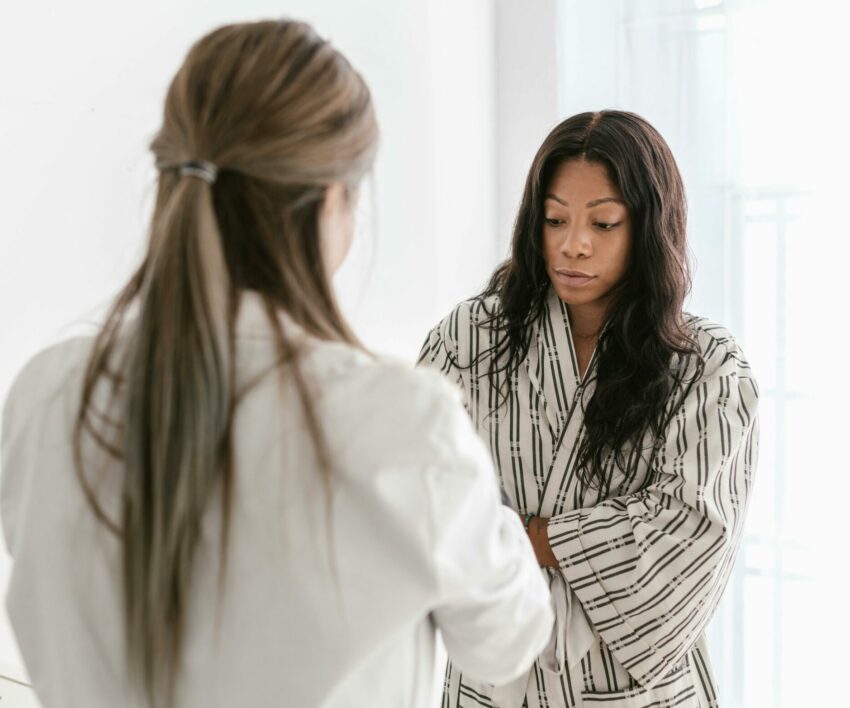
woman with doctor: picture: pexels
When we think of oestrogen, we often associate it with women’s reproductive health, but did you know that as women age, a drop in oestrogen levels can quietly impact bone health?
As levels decline—especially around menopause—the body loses this support, leading to an increased risk of a condition known as osteoporosis and fractures. Understanding this connection is key to safeguarding bone health for life. Let’s explore how oestrogen affects your bones.
The Cleveland Clinic defines osteoporosis as a disease that weakens bones, making them thinner and less dense, leading to an increased risk of bone fractures. The clinic states that most people don’t realise they have osteoporosis until it causes a bone break.
Commonly affected bones include hips, wrists, and spine, the above source reveals. “The sooner a healthcare provider diagnoses osteoporosis, the less likely you are to experience bone fractures. Ask a healthcare provider about checking your bone density, especially if you’re over 65, have had a bone fracture after age 50, or someone in your biological family has osteoporosis.”
According to the Bone Health & Osteoporosis Foundation, “Estrogen, a hormone in women that protects bones, decreases sharply when women reach menopause, which can cause bone loss. This is why the chance of developing osteoporosis increases as women reach menopause.”
Factors such as early menopause, hysterectomy, and prolonged absences due to over-exercising or excessive dieting increase the risk of osteoporosis, claims the National Health Services,
The above source continues to claim that pregnancy-associated osteoporosis is rare and usually goes away after giving birth. It is mentioned that breastfeeding may cause temporary bone loss, but bone density recovers over time and should not cause long-term harm. “All women who are pregnant or nursing need to get enough calcium, vitamin D and appropriate exercise to keep their bones healthy. If you’re breastfeeding exclusively, ask your child’s paediatrician if you need to give your baby supplemental vitamin D.”
